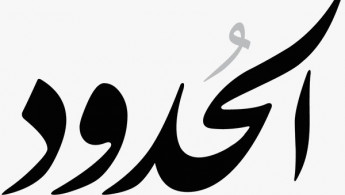Jordan blocks satirical news site, known as 'Arab The Onion', Al-Hudood
A satirical Arabic-language news site has been blocked by Jordanian authorities for reasons which remain unclear.
Al-Hudood, often referred to as the Arabic language The Onion, has been a hugely popular site in the Arab world for its clever, and sometimes cutting, satire of current affairs.
Staff on Wednesday defended the London-based platform from criticism, saying it does not exclude anyone from ridicule and satire.
"It's really unfortunate to see freedoms of all sorts deteriorating constantly in Jordan, and we worry about the effect this will have, not just on us as a publication but on journalists and writers and citizens alike in what they can produce and what they can consume," a source from Al-Hudood, who preferred not to be named, told The New Arab.
The website defended its coverage and reiterated its commitment to a free press in Jordan.
"Blocking it in Jordan is a new step towards threatening freedom of expression [in the country]," a member of the staff said in a statement.
"Not to mention that the King of Jordan himself and his wife stood in the first row alongside world leaders in 2015 to condemn the terrorist attacks on Charlie Hebdo, while Jordan today is blocking a satirical site which may have posed a threat that we are unsure of."
It questioned Amman's motives for blocking the website while "ironically" it was still accessible in Syria, whose regime has one of the worst human rights records in the world.
While there is no indication what story might have triggered censors in Jordan, the website has courted controversy for its coverage of events in the kingdom and beyond.
Following the royal wedding of Jordan's Crown Prince Hussein last month, Al-Hudood published a satirical report of the event, which saw millions across the region tune in to see the happy couple wed.
"Where did the prince get all this money to cover the cost of the wedding?" read one of Al-Hudood's posts after the wedding.
"You again? You're asking again? Have you not learnt?" it continues. It depicted a man with a black eye who appears to have been beaten, as a billboard with Prince Hussein and his wife can be seen in the background.
بعد مرور شهر على عرس أمير الأردن حسين بن عبدالله الثاني، حَجبت السلطات موقع «شبكة الحدود» من دون توضيحٍ أو تصريح. المُتوقّع أن سبب الحجب يعود إلى المحتوى الساخر الذي نشرته «الحدود» بالتزامن مع العرس، وهو محتوى تعيد ميغافون نشره هنا.
— Megaphone (@megaphone_news) July 5, 2023
يُشار إلى أن السلطات الأردنية تُمارس رقابةً… pic.twitter.com/v8Wlpx93ba
Jordan enjoys relative stability compared to its Middle East neighbours but protests have flared up in recent years as it struggles with economic woes. Many criticised the royal family for holding a lavish wedding amid rising poverty.
The publication has also been blocked in other Arab countries including the United Arab Emirates.
Founded in 2013, Al-Hudood - Arabic for the border - publishes tongue-in-cheek rewrites of news on major events around the world, adding its comic twist to headlines and articles.
While it originally focused on news from Jordan, it expanded its coverage to news from across the MENA region and the rest of the world.
The site has more than 68,000 followers on Instagram and 29,000 followers on Twitter.
"Our site is not a news site. News is, after all, organised gossip. Al-Hudood is a site dedicated to satire and comedy, which can be dark sometimes," reads the publication’s bio on Instagram.
The decision to block Al-Hudood comes amid a decline in media freedoms in the kingdom, which remains extremely low according to Reporters Without Borders (RSF).
In its 2022 report, RSF ranked Jordan among countries in a "difficult situation" with freedom of the press.
Though media freedom is constitutionally guaranteed, laws regulating media have been amended multiple times over the years, giving authorities the power to censor news.
The New Arab has approached the Jordanian embassy in London for comment on the issue.





 Follow the Middle East's top stories in English at The New Arab on Google News
Follow the Middle East's top stories in English at The New Arab on Google News


